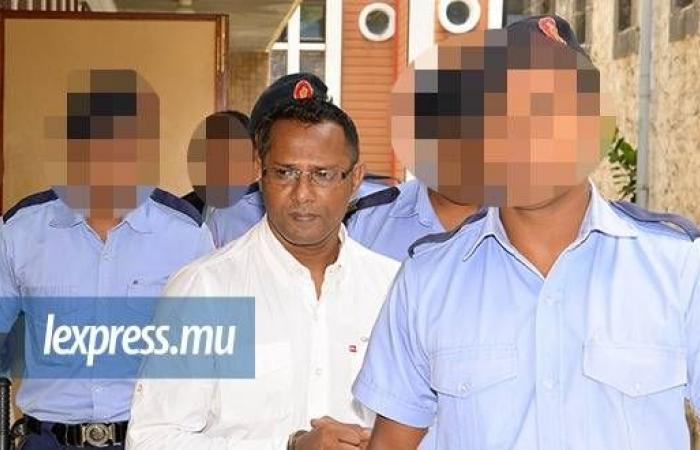The Law Lords found that Jiaved Ruhumatally had denied any intention to kill and questioned premeditation.
In a 26-page verdict delivered yesterday afternoon, the Law Lords annulled the trial of Jiaved Ruhumatally, sentenced in 2015 to 40 years in prison for the assassination of Gérald Lagesse in 2005, and ordered a new trial. They concluded that the Assize Court judge had made errors, resulting in a serious irregularity, and noted that the prosecution had raised the possibility of changing the charge from murder to a lesser charge. In these circumstances, the accused could be prosecuted for manslaughter.
Nine years after the conviction of Jiaved Ruhumatally for the murder of Customer Service Supervisor of the Mauritius Commercial BankGérald Lagesse in 2005, the Privy Council gives a new direction to this matter. The body of Gérald Lagesse, bound and gagged, was found in the bank’s vault. Ruhumatally was provisionally charged with murder and placed in detention. He was released on bail after that charge was quashed and upgraded to a provisional charge of manslaughter. In April 2012, his two accomplices were charged with manslaughter. However, in January 2014, a new murder charge was brought against him only. Brought to court, Ruhumatally pleaded not guilty to the assassination of Gérald Lagesse. His two accomplices had benefited from a separate trial and had pleaded guilty. They received a prison sentence of 16 years each while Ruhumatally was sentenced to 42 years in prison.
In their judgment, the Law Lords David Lloyd-Jones, Nicholas Archibald Hamblen and Ben Stephens, Sir Timothy Holroyde and Dame Ingrid Ann Simler focus on the judge’s instructions to the jury during the trial at the assizes in 2015. They note that Ruhumatally had denied any intention to kill, and therefore any premeditation. “It was therefore particularly important that the judge be specific when reminding the jury of the evidence of what the appellant did to Mr Lagesse. Unfortunately, with all respect to the judge, he made a mistake in this regard.write them Law Lords. In addition, they note a serious error in a central question on the death of Gérald Lagesse.
The jury, they said, could have inferred that appellant had tied a shirt around the victim’s mouth to reinforce the gag and reduce his ability to remove it. “However, if there had been evidence that the appellant had fastened the shirt to prevent breathing through his nose, this would have been important in determining whether he intended to kill and whether the killing was premeditated. Conversely, the fact that the shirt was tied with the nose exposed supported the defense’s theory that the killing was unintentional. The judge did not correct his error in his summary to the jury, not asking them to ignore the idea that the shirt covered the nose and mouth.declare the Law Lords.
THE Privy Council concludes that the judge failed to ask the jury a question on which only they could decide. “The judge made another error in his summary. To convict the appellant of murder, the jury had to be certain that the appellant intended to kill Mr. Lagesse and that the murder was premeditated. Although the robbery was planned, there was no evidence of premeditation of the murder prior to entry into the vault. The caller’s statements indicated that no one was expected to be seriously injured. The judge correctly indicated that premeditation required calm reflection. Unfortunately, he misinterpreted the evidence in summarizing the events in the vault.”underline the Law Lords.
For the Privy Council, the Mauritius Court of Appeal should have concluded that the combination of these errors, all relating to issues of prime importance, made it impossible to uphold the conviction. It should have found that this combination of errors constituted a serious irregularity and resulted in a serious miscarriage of justice. She should have exercised her power to declare a mistrial and order a new trial.
Ruhumatally’s appeal was heard on January 24. The Director of Public Prosecutions (DPP), Mᵉ Rashid Ahmine, traveled to London for the pleadings. He had argued that the Privy Council could ask the Supreme Court to try the accused again. However, holding a new trial meant establishing that there had been an irregularity in the case at first instance. Ruhumatally was defended by Mᵉˢ Zaredhin Jaunbaccus and Iqbal Dauhoo.





